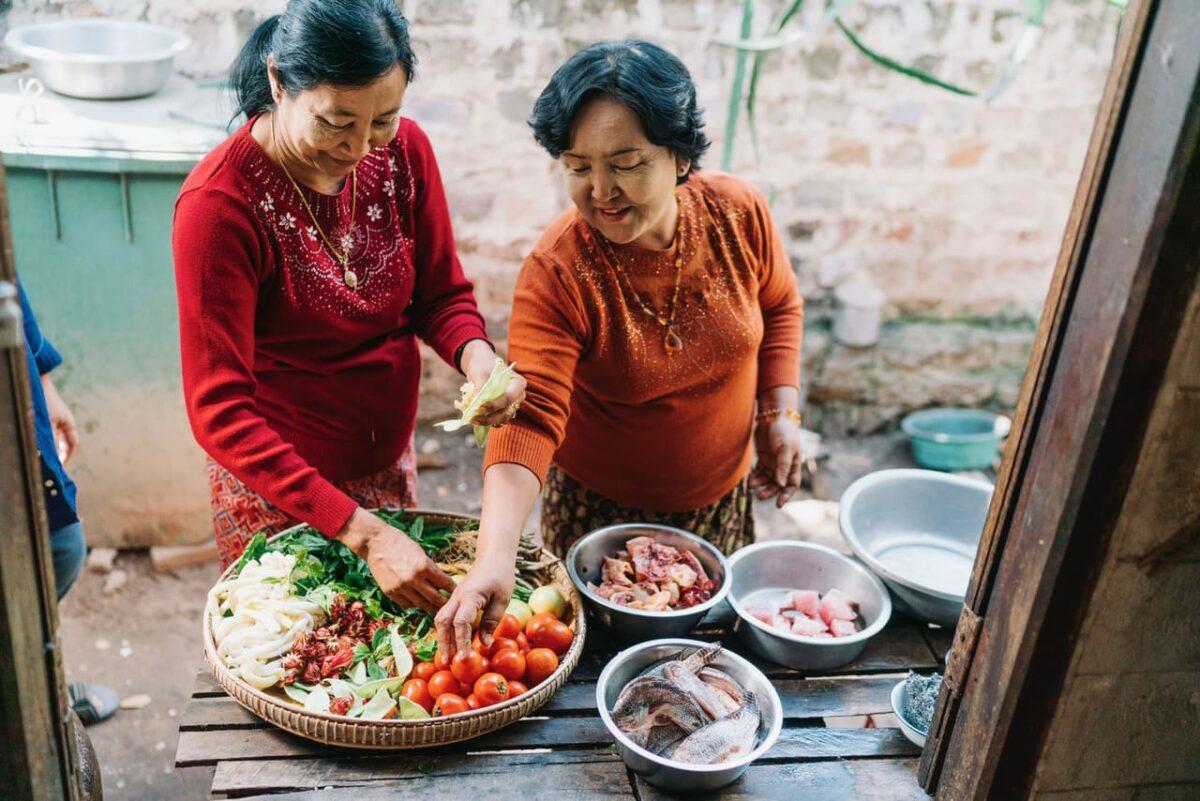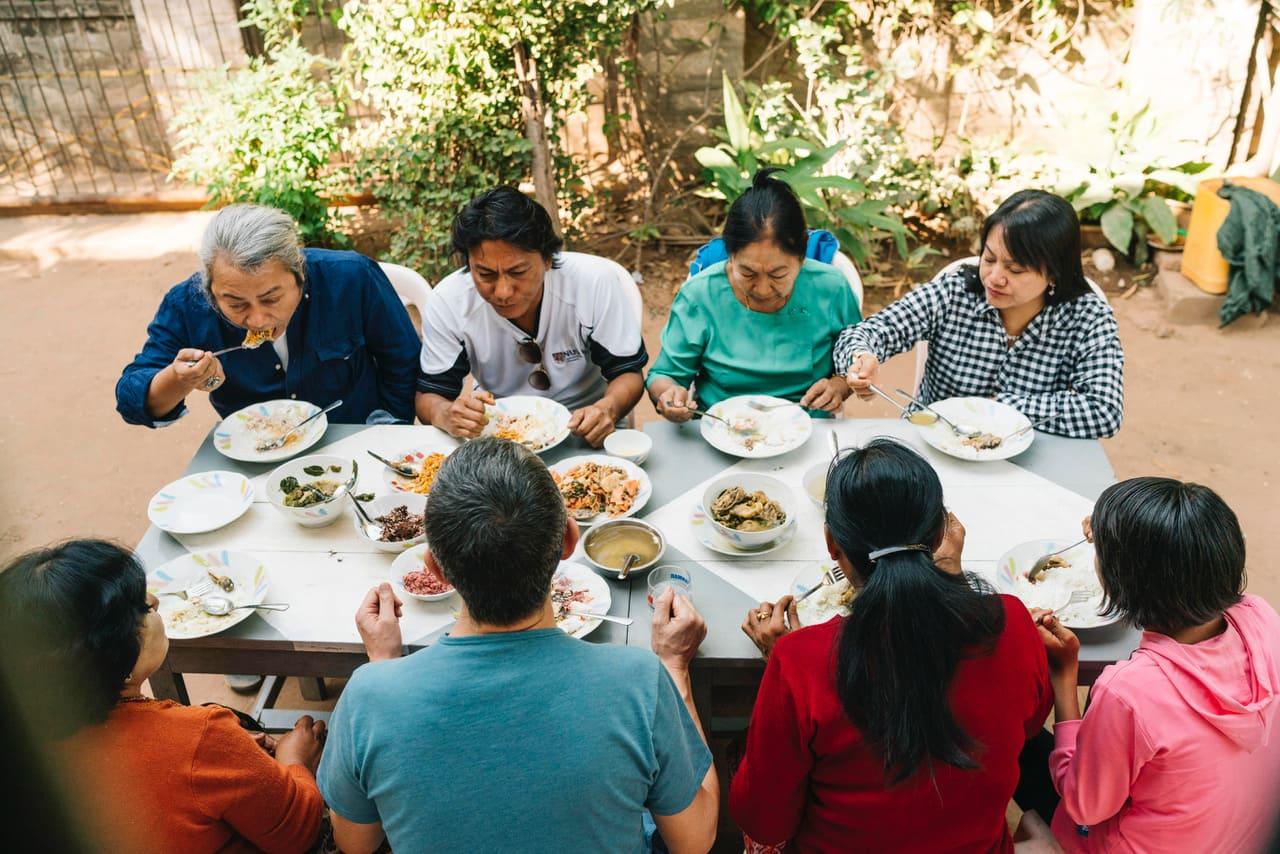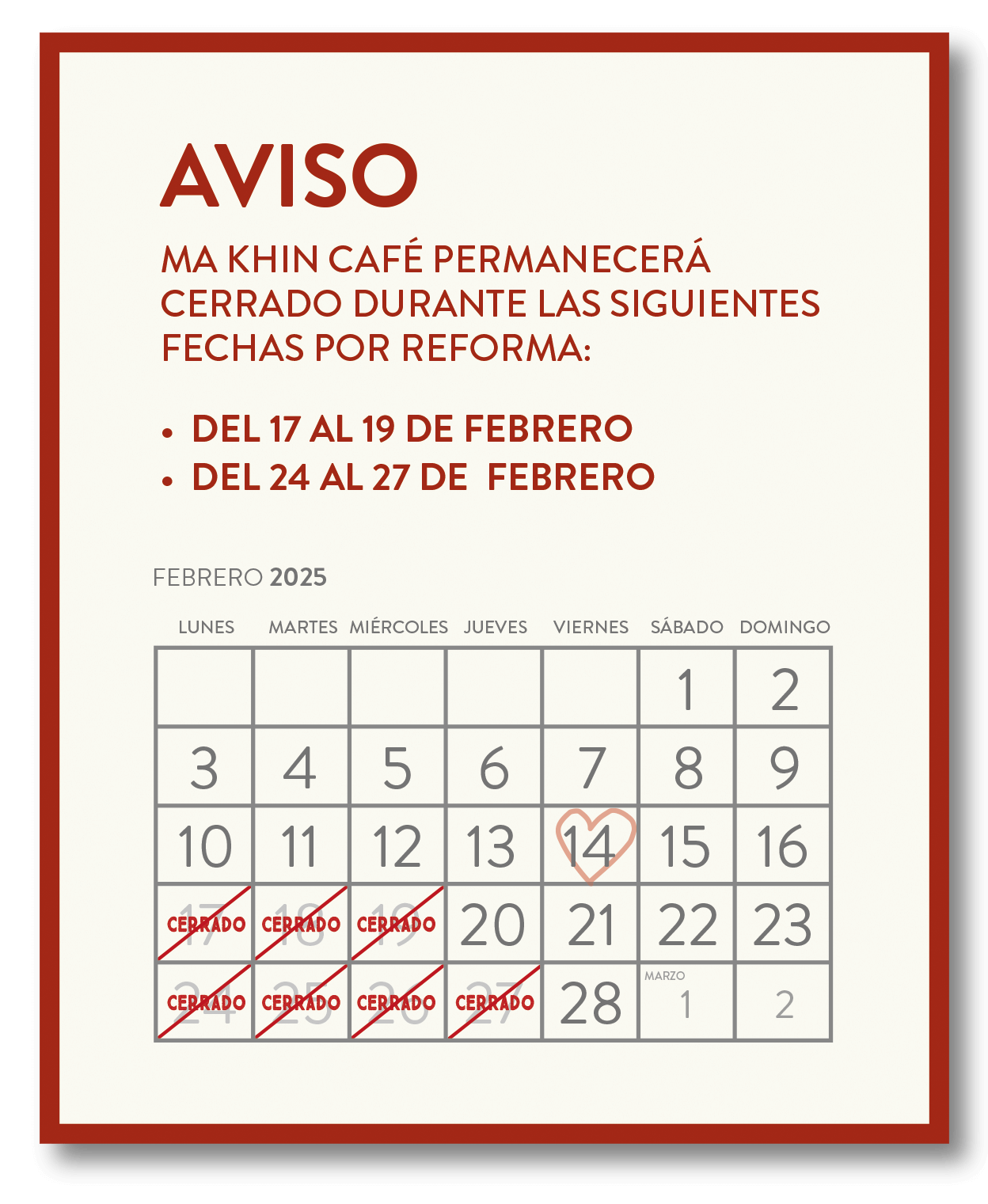Events
Salad Days | From Burma to your table
Summer is here, and with it comes the craving for cold, light, and healthy dishes. During my first visit to Burma (today Myanmar) 20 years ago, I discovered an incredible variety of salads or thoke, which in Burmese literally means “mixed by hand”. It’s the best way to dress a salad as care and love are transmitted through our hands. And let’s face it: what is food without love?
Burmese Salads: A unique culinary experience
Lah Pet Thoke: The essence of the burmese table
What is never missing from a good Burmese table is lah pet thoke, a salad of fermented tea leaves. Lah pet plays an important role in Burmese society. It is offered to the nats, the guardian spirits of the forests and mountains, who are integrated into the unique form of Buddhism practiced by most Burmese. It is also an essential offering at weddings and shinbyu, the Buddhist novitiate ceremony. Traditionally, the invitation to the shinbyu is made by going door to door with a tray of lah pet. Accepting the offering means accepting the invitation to the shinbyu.
From Burma to the West: Myanmar’s opening and the importation of Lah Pet
After decades of being closed to contact and trade with Europe, Myanmar began to open up to tourism in the 90s, and some importers dared to bring lah pet to the West. My friend Zaw Mahesh continues to import lah pet for his namesake restaurant in London. But the UK is no longer part of Europe, and the “undocumented” lah pet that Zaw sends me is kept for my own consumption. At Ma Khin, we make do with lah pet from the tea leaves resulting from the fermentation of our kombuchas, achieving a flavor that matches the astringency and acidity of the original product.
Experimentation in Matarraña: Lah Pet with a mediterranean twist
I’m writing this post from the Matarraña region in Teruel (if you come here, don’t miss a stay at La Torre del Visco, my favorite hotel in the world). I just picked some raïm de pastor from the mountains. I’m thinking of fermenting and seasoning it as the Burmese do with lah pet, incorporating garlic, chili, lemon juice, and peanut oil. I’m sure this raïm de pastor, mixed with fried peas and broad beans, cacaos de collaret, toasted sesame, dried shrimp, Valencian tomatoes, and shredded cabbage, will be a delicious raïm de pastor thoke, another of those happy encounters between Mediterranean and Asian products and traditions that characterize the decolonial cuisine of Ma Khin.
Fermentation and preservation: Burmese traditions today
In Burma, the consumerism characteristic of our Western societies is a recent phenomenon, and the 2021 coup has created food insecurity for a significant part of the population. Thus, the traditions of fermentation for food preservation are becoming important again. The street markets of Burma have always offered a great variety of fermented products, not only vegetables but also fish. These ingredients provide the essence of a good Burmese salad, a balance of sour, salty, spicy, sweet, and umami flavors. Crunchy textures from seeds, peanuts, nuts, and fried shallots are also essential. The production of this last ingredient generates a double benefit. It is common to use peanut oil to fry the shallots. These onions impart a very pleasant sweet flavor to the oil, which, when mixed with fresh lime juice, becomes an ideal dressing for salads. Even more so if we sprinkle toasted chickpea flour over the finished dish. The combination of the flour and the oil creates a creamy and smooth emulsion that surprises the most demanding palates.
Endless variety: Examples of burmese salads
With so much variety, the possibilities for Burmese salads are endless. Here are a few examples to tempt you:
- Spinach salad with fried garlic, lime, sesame, shrimp, and toasted rice
- Roasted eggplant salad with shallots and fish sauce
- Ginger salad, a favorite at Ma Khin, with cabbage, ginger, cherry tomatoes, and seeds
- Lemon salad with ngapi (fermented fish) and green chili
Demonstration and dinner at Ma Khin
On June 25th, at 7pm, we will offer a demonstration of the best salads from Ma Khin, followed by a dinner where you can enjoy the cooked dishes. We look forward to seeing you!
.png)


